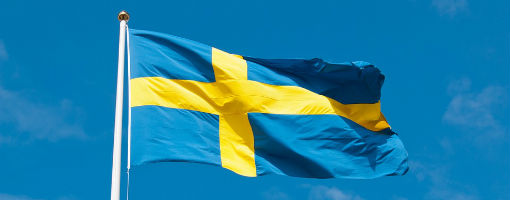Several Swedish pension funds have delivered positive returns for the first half of the year, despite a "challenging" market amid geopolitical and trade policy concerns.
Swedish pension fund AMF confirmed that its total return for H1 was 1.1 per cent thanks to a "shaky stock market ride and significant fluctuations", whilst its solvency ratio had dipped slightly from 225 per cent to 221 per cent.
Although this marks a fall on the 5.7 per cent return seen in the same period in 2024, AMF CEO, Tomas Flodén, emphasised that the fund was still able to secure a positive total return despite the geopolitical and trade policy concerns
"An already uncertain world became even more turbulent during the first six months of the year, with increasing geopolitical and trade policy concerns," he continued.
"AMF's broad portfolio has a good risk spread, and together with our active management, we are well positioned to deliver a competitive return to our savers over time, in both good and more challenging times."
The strongest return was from fixed income assets, which increased by 2.5 per cent, followed by properties, which returned 2.3 per cent, and alternative investments, which returned 1.5 per cent.
AMF head of asset management, Katarina Romberg, also pointed out that whilst the fund's shares actually had a negative return after currency effects during the period, it was able to report a positive return on the total, highlighting this as a demonstration of the strength of traditional pension management.
Fellow Swedish pension provider FPK also narrowly escaped a negative return for the first half of the year, as its interim report confirmed that toal return on investments amounteed to 0.2 per cent, down from 4.7 per cent in H1 2024.
The group explained that whilst the year began with a relatively stable market development, the beginning of the second quarter saw US President Donald Trump introduce extensive tariffs, which led to sharp stock market declines and a marked weakening of the US dollar.
This had a negative impact on equities and alternative investments, which contributed negatively with -0.8 and -0.5 percentage points respectively.
However, FPK introduced a new currency strategy from April 1, which involved hedging EUR and USD for alternative assets excluding private equity.
The year's return was also boosted by interest-bearing assets, which contributed 1.3 percentage points, and by real estate with a contribution of 0.2 percentage points.
Swedish pension company Alecta's interim report painted a similar story, revealing that whilst its returns in H1 were significantly down on the 7.7 per cent in H1 2024 at 2.6 per cent, this was still a positive result given recent volatility.
Broader work has also continued amid the ongoing turmoil, as AMF confirmed that the option to pause the occupational pension has now been introduced for the majority of AMF's savers, after intensive work on this over the past year.
"We were also able to increase security for around 120,000 savers by converting SEK 600 million into guarantees, and we distributed a surplus of SEK 590 million to 3.8 million savers within the SAF-LO agreement area with traditional insurance," AMF CEO Tomas Flodén, added.
Alecta previously became one of the first pension companies to offer the option of pausing occupational pensions in January.
Its interim report also confirmed that, from May 2025, the option of extending the payment period for occupational pensions was also introduced, which required "rapid product and system development".
Latest News
-
Spanish pension plan assets rise by €916m in January
-
Black Arrow Group pension scheme completes £7m buy-in with PIC
-
Dutch pension funds report improved January funding positions
-
Finland’s Ilmarinen makes work ability management key part of sustainability work
-
UK's IBM pension scheme completes £700m buy-in with Standard Life
-
Sweden’s AP2 reports SEK 20.9bn profit amid AP6 merger
Podcast: Stepping up to the challenge

In the latest European Pensions podcast, Natalie Tuck talks to PensionsEurope chair, Jerry Moriarty, about his new role and the European pension policy agenda
Podcast: The benefits of private equity in pension fund portfolios

The outbreak of the Covid-19 pandemic, in which stock markets have seen increased volatility, combined with global low interest rates has led to alternative asset classes rising in popularity. Private equity is one of the top runners in this category, and for good reason.
In this podcast, Munich Private Equity Partners Managing Director, Christopher Bär, chats to European Pensions Editor, Natalie Tuck, about the benefits private equity investments can bring to pension fund portfolios and the best approach to take.
In this podcast, Munich Private Equity Partners Managing Director, Christopher Bär, chats to European Pensions Editor, Natalie Tuck, about the benefits private equity investments can bring to pension fund portfolios and the best approach to take.
Mitigating risk
BNP Paribas Asset Management’s head of pension solutions, Julien Halfon, discusses equity hedging with Laura Blows
© 2019 Perspective Publishing Privacy & Cookies







Recent Stories